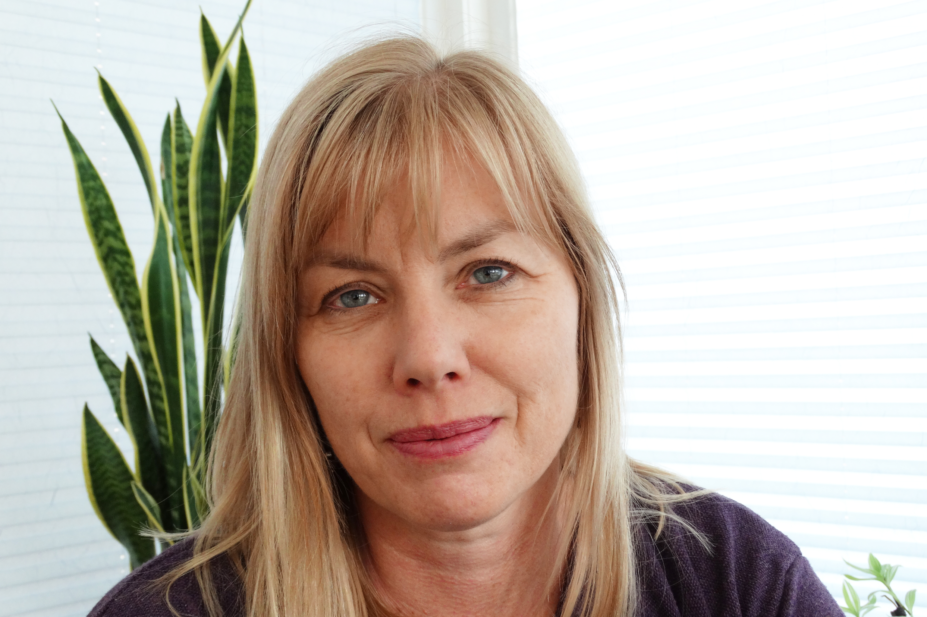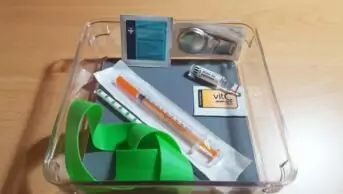
Courtesy of Catriona Matheson
Catriona Matheson has been appointed by the Scottish government to chair Scotland’s newly-created Drug Deaths Taskforce, a cross-sector group that aims to reduce the nation’s rising number of drug-related deaths. In 2018, there were 1,187 drug-related deaths in Scotland: an increase of 27% from the previous year. Scotland now has the highest drug-related death rate in the EU — three times higher than the UK as a whole.
Matheson has a PhD in pharmacy services for drug users and has spent 25 years researching the issue, mostly based at Aberdeen University. She is a freelance consultant specialising in drug dependence and works one day per week as a professor in substance use at the University of Stirling. She also chairs the Drugs Research Network for Scotland.
Here, Matheson talks about why Scotland has such a high level of drug-related deaths and how the Drug Deaths Taskforce aims to address the problem.
Why does Scotland have a high level of drug-related deaths compared with the other UK nations?
It’s complicated. Scotland has more areas of deprivation compared with other parts of the UK and there are healthcare inequalities that go along with that. That’s been the situation for a long time.
Scotland has an ageing cohort of drug users who started using drugs in the 1980s. During that period there was a high level of unemployment and disenfranchisement in certain communities, and that’s when drugs also started to become more available. Quite a lot of that group are ones who are now dying.
Although opiate replacement treatment is widely available, there’s questions about whether it’s being delivered in an optimal way
There are other factors involving the actual drugs that are being used and also around treatment. It’s common for people to use more than one substance: they might be on a methadone prescription, but they may top-up if they are self-medicating for, say, mental health problems. This links into treatment: although opiate replacement treatment is widely available, there’s questions about whether it’s being delivered in an optimal way. The importance of opiate replacement treatment is not just prescribing the drug; it’s the wrap-around services and support that should go along with it. I feel that that’s what Scotland, unfortunately, is not providing as well as it could be.
There’s a lot of talk about drug deaths, but what about drug-related morbidity? Is that being addressed?
Whether it’s being addressed or not, the response is inadequate and that’s where I’d like to see a lot of improvements made. I think pharmacy has a role to play in that. We know, for example, that COPD, asthma and circulatory disease are more prevalent in the drug-using community. If we look at those things as examples, they aren’t necessarily being treated to an optimal degree.
These conditions should be treated through normal general practice or primary care, but because of the stigma associated with being a drug user, people don’t always want to go to their GP. That’s an area where pharmacy could do more to try to identify patients who are at higher risk, who might have some of these conditions that are untreated.
How much of the problem in Scotland lies with illegal drug use, compared with prescription or over-the-counter drugs?
Most of the deaths in Scotland are related to illegal drug use, but not exclusively by any means. We have noticed that prescribed drugs are part of the problem. It’s mostly illegal drugs, but there can be a polypharmacy effect where someone is using illegal drugs, but also taking some prescribed medicines, such as for mental health conditions or pain.
There’s a mixture of things going on, but I think the baseline is generally heroin and ‘street’ benzodiazepines. There are also quite a number of drug deaths caused by prescribed drugs, such as gabapentinoids.
Do you think decriminalising illegal drugs would reduce drug deaths?
I don’t think it would have any immediate effect on drug deaths, but I do support decriminalisation of small amounts for personal use. I don’t think it’s helpful to criminalise someone who is found with a small amount of drugs for their own use, not for supply, and who is not associated with any other form of criminal activity.
When you say you support decriminalisation for personal use, does that include all illegal drugs, from heroin to cannabis?
Taking drugs can be harmful to your health, so let’s reduce the risk of that and think about the health of the individual rather than whether or not they’re a criminal
Across the board. Cannabis, for sure, but heroin also. If somebody’s got a small amount of heroin on them, for their own use, I don’t see that it benefits anybody to give them a criminal record. Many people are picked up in relation to other things — there may have been some sort of crime committed — but that’s a different story. If you just happen to have some drugs on your person, even Class A, cocaine or heroin, you should be directed into some kind of support, treatment, education programme, rather than the criminal justice system.
Is this what people mean when they talk about taking a public health approach to drug misuse?
It is, in that it’s about reducing risk and putting health first. People that are keen on a criminal justice approach tend to come at it from an ideological perspective. They think, “Well, drugs are wrong; therefore, it should be a criminal act to be involved in that”. But a health approach is much more pragmatic: taking drugs can be harmful to your health, so let’s reduce the risk of that and think about the health of the individual rather than whether or not they’re a criminal.
What are the objectives of Scotland’s Drug Deaths Taskforce?
The group’s immediate objective is to look at figures on drug deaths and try to coordinate an approach to bring those down. That’s not going to be an easy task. It’s about working with everyone that’s involved in managing drug use across the police force, criminal justice system, health service — including pharmacy, general practice, and psychiatry — and people with lived experience of drug use, as well as all the frontline and third-sector services who support people.
We will look at what we can do in the short, medium and long term. We’ll put things into action and then evaluate them
We need to do something differently. What’s important about the taskforce is that it is not going to be just a series of meetings and then a report — we’re taking an ‘action and outcome’ approach. We will look at what we can do in the short, medium and long term. We’ll put things into action and then evaluate them. Where things appear to be successful, we’ll extend them to other parts of the country.
You mentioned that the taskforce will include people with experience of drug use: does that mean people who use or have used drugs?
Yes, definitely. It’s so important — patient and public involvement is a big change across the sector, to try to bring in people who are affected, across all areas of health. But, in drug research, it has really helped to shape and improve things. There will be a couple of people on the taskforce who have lived experience: one who has lost a family member and another who has taken drugs in the past.
The taskforce will look at the Misuse of Drugs Act 1971 and how it might impact a public health approach to drug use. What’s that about?
Possession of any illegal drug is a criminal act. The specific example with the Misuse of Drugs Act is around supervised drug consumption rooms. There is a proposal to open a supervised drug consumption room to provide clean needles and naloxone, as well as nurses and trained staff who are on hand to give harm reduction advice.
Unfortunately, although there was support locally and nationally, the proposal has hit the buffers because the Misuse of Drugs Act says that if you go to a place where you know there’s going to be illicit drugs used, you are breaking the law. So this would mean that the staff would be effectively breaking the law to work there.
Needle exchanges get more of a public positive response than, say, methadone prescription, which is much maligned in the general public
We need to consider whether there’s another way of doing it. In Glasgow in particular, there are a lot of problems with street homeless drug users; people go into the city centre and inject close to where they’re getting their drugs. So it would be a really useful initiative.
In 2017, Scotland’s busiest needle exchange was closed down. Is there currently a lack of provision for needle exchange?
Needle exchanges are generally not controversial. That closure was controversial — that exchange was very well used. But good provision is available in other places now. I’ve done research with the general public about this and there is an acceptance that needle exchange is actually quite sensible because people are taking an initiative to look after their health by using this service. It gets more of a public positive response than, say, methadone prescription, which is much maligned in the general public.
How significant is it that a pharmacist is leading the Drug Deaths Taskforce?
Pharmacy has had so much input into developments for drug users. These have been led by people like Carole Hunter, lead pharmacist in addiction services, and Stuart Notman, advanced pharmacist in addictions, both at NHS Greater Glasgow and Clyde. These are essential figures who have done a lot at ground level to roll out services, including an enhanced drug treatment service and a heroin assisted treatment centre.
I think pharmacists need to promote ourselves a bit more — as a profession we tend to just quietly get on with things. We have so much knowledge, from a clinical perspective and a pharmacological perspective. But we also have the appreciation of the scientific and public health approaches, which I think goes across this field very well.


